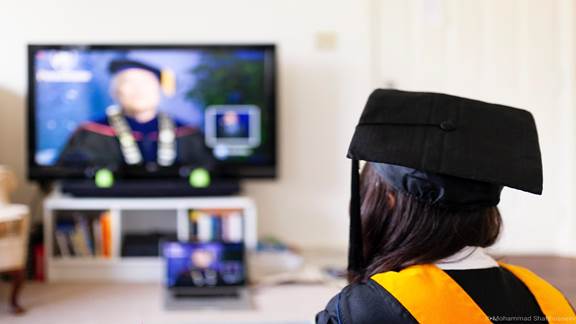At the beginning of the 2010’s it was predicted that massive open online courses (MOOCs), like Khan Academy, Coursera, Udacity and edX would disrupt the global education industry. Until now however, students and educators have continued to favour face-to-face learning. The coronavirus pandemic has offered a glimpse into a model of higher education that is dramatically different.
Blended learning programmes will help universities to address the potential £760m shortfall in their income by opening up new revenue streams. As well as better serving international markets, blended learning models can meet the needs of non-traditional students (over 25, working adults) and students from disadvantaged backgrounds. Moving online has allowed one American University to cut their tuition fees by 61%, opening up higher education to a wider audience. And, as the nature of work continues to evolve, forcing workers to re-skill throughout their lives, universities can use blended learning to deliver learning in smaller, more flexible chunks.
Online learning platforms allow students and educators to learn from and add to a global knowledge base. Whilst some universities already put lectures by their star instructors online, services like MasterClass offer celebrity-led courses including: Frank Gehry Teaches Design and Architecture; Chris Hadfield Teaches Space Exploration; and Dr Jane Goodall Teaches Conservation. At the same time universities are experimenting with global collaboration through programmes like the Erasmus+ Virtual Exchange project, which promote collaborative learning between students from across the world.
New technologies such as augmented reality, virtual reality and mixed reality are already enabling educators to create virtual learning environments that dramatically amplify engagement and retention. Google’s Expeditions for example allows students to explore galleries, museums, the deep ocean and outer space through over 1000 VR and AR tours.
Finally, the evolution of online learning has the potential to produce better student outcomes: data analytics, machine learning and artificial intelligence will enable tutors to facilitate a more personalised and enriching experience. Online assessments will enable one-to-one teaching focused on a student’s individual challenges and focus areas. In the new academic year and beyond, universities must continue to adapt. Post-coronavirus students and educators will be accustomed to and even expectant of learning programmes that blend online and face-to-face teaching.
In developing those programmes universities are more likely to succeed if they focus on the needs of students and educators. While promoting the best parts of the traditional university experience, universities should build on the spirit of innovation we’re currently seeing. Using it to fuel their efforts as they seek to capture the opportunities offered by an accelerated development in online learning.
Image source: Mohammad Shahhosseini
